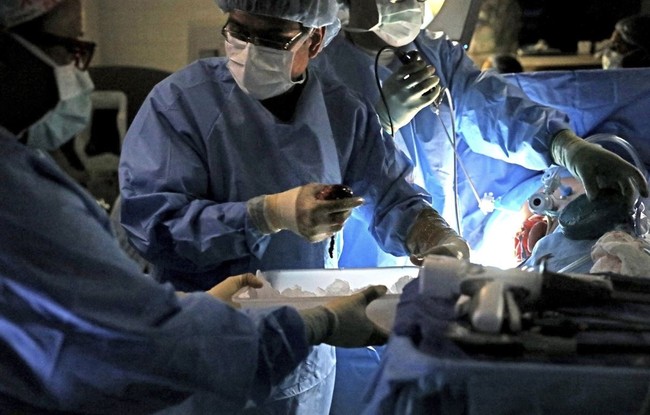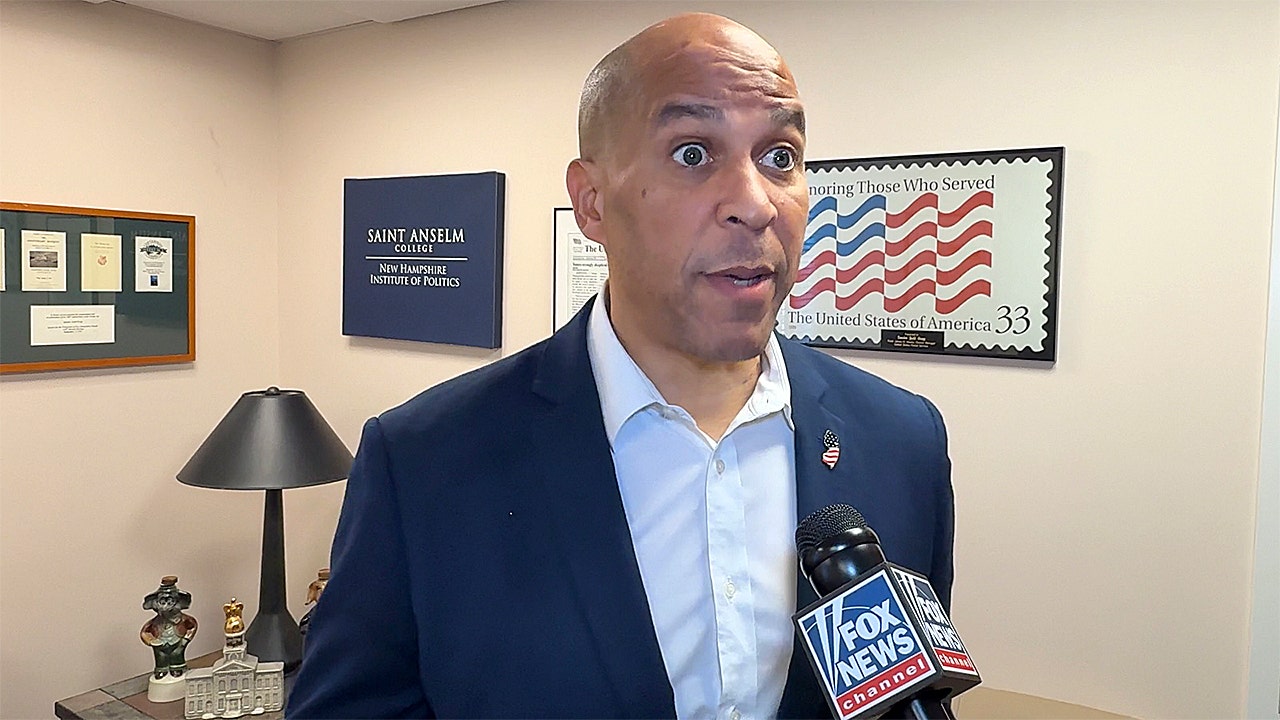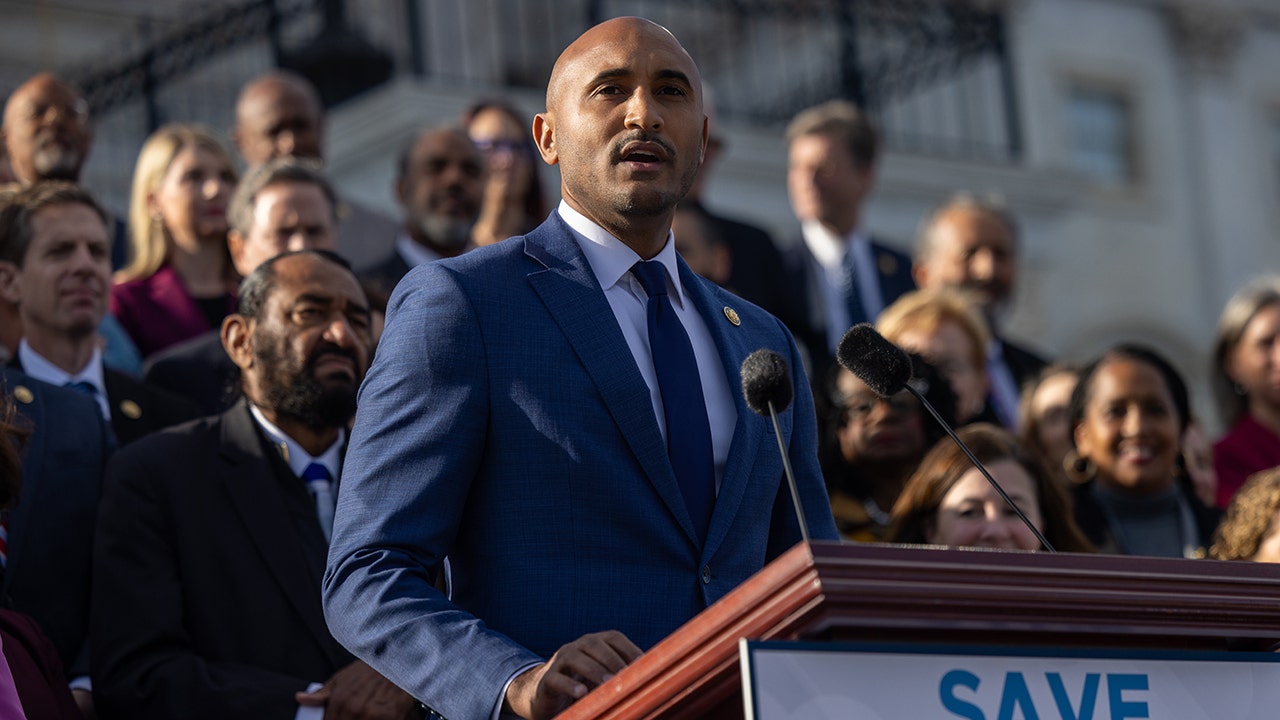Organ donation programs can save lives.
I know people who have had heart and kidney transplants, and I thank God and the doctors for the many more years they have lived due to this miraculous technology.
Conversely, I haven’t trusted the organ harvesting system for years, long suspecting that the push to increase the number of available organs leads doctors to take shortcuts in making their assessments about whether a patient is viable. We know it happens in places like China, and there have been cases in America that indicate it sometimes occurs here.
Read More ➡️https://t.co/HGRlsICEaq
— HHS.gov (@HHSGov) July 21, 2025
You can see how and why it happens, as ghoulish as it seems to ordinary people. Doctors have to make life and death assessments all the time, and the brutal calculus of choosing who lives and who doesn’t is sometimes forced upon them. Usually, though, the choices made have more to do with triage–when resources are stretched thin, doctors treat the people most likely to benefit from care.
Organ donation choices may, under the wrong circumstances, lead to an even more brutal calculus, even though there are supposed to be safeguards against it. Doctors may be choosing to kill patients in order to save others. At least that is what Health and Human Services Secretary Robert F. Kennedy is asserting. And I believe him.
WASHINGTON—July 21, 2025— The U.S. Department of Health and Human Services (HHS) under the leadership of Secretary Robert F. Kennedy, Jr. today announced a major initiative to begin reforming the organ transplant system following an investigation by its Health Resources and Services Administration (HRSA) that revealed disturbing practices by a major organ procurement organization.
“Our findings show that hospitals allowed the organ procurement process to begin when patients showed signs of life, and this is horrifying,” Secretary Kennedy said. “The organ procurement organizations that coordinate access to transplants will be held accountable. The entire system must be fixed to ensure that every potential donor’s life is treated with the sanctity it deserves.”
HRSA directed the Organ Procurement and Transplantation Network (OPTN) to reopen a disturbing case involving potentially preventable harm to a neurologically injured patient by the federally-funded organ procurement organization (OPO) serving Kentucky, southwest Ohio, and part of West Virginia. Under the Biden administration, the OPTN’s Membership and Professional Standards Committee closed the same case without action.
Under Secretary Kennedy’s leadership, HRSA demanded a thorough, independent review of the OPO’s conduct and the treatment of vulnerable patients under its care. HRSA’s independent investigation revealed clear negligence after the previous OPTN Board of Directors claimed to find no major concerns in their internal review.
HRSA examined 351 cases where organ donation was authorized, but ultimately not completed. It found:
- 103 cases (29.3%) showed concerning features, including 73 patients with neurological signs incompatible with organ donation.
- At least 28 patients may not have been deceased at the time organ procurement was initiated—raising serious ethical and legal questions.
- Evidence pointed to poor neurologic assessments, lack of coordination with medical teams, questionable consent practices, and misclassification of causes of death, particularly in overdose cases.
I have no idea whether financial considerations are involved, although the experience of navigating the COVID pandemic makes it clear that financial incentives significantly influence behavior, even in the “caring” professions. And we know for certain that the rapid expansion of gender clinics for children was a big money grab.
Vanderbilt was apparently concerned that not all of its staff would be on board. Dr. Ellen Clayton warned that “conscientious objections” are “problematic.” Anyone who decides not to be involved in transition surgeries due to “religious beliefs” will face “consequences” pic.twitter.com/CgNicrG4Mg
— Matt Walsh (@MattWalshBlog) September 20, 2022
In other words, harming children was good business.
But let’s give medical professionals the benefit of the doubt here and just assume that they have been making assessments based on the calculus that healthy organs will do more good in another patient rather than the one who has it now. Consider it a form of “equity,” or whatever you like. Maybe advanced-level triage, only involving cutting people open and taking their organs to give it to people they think will benefit more from them.
I had an eye-opening experience which changed how I saw doctors–not in a precisely negative way, just in an eye-opening way–when discussing my bypass surgery. I was only 39 at the time and was discussing the risks with my surgeon (whom I liked immensely). We were discussing risks, and I discovered we had vastly different ideas of what “low risk” meant in this context.
He told me the surgery for me was very low risk because of my age and general health. I asked for rough odds, and he said something like, “Oh, only a 1% chance of mortality and about 5% chance of stroke.”
Yikes. That was not my idea of low risk.
In other words, how he thought of death and how I thought of death were based on living in two different universes. He sees death every day, and it is a casual fact of life. If you think like that, what calculus would you use to decide whether organs belong in a person with a relatively low chance of survival or one who could live years or decades if they had them?
I don’t know. But what I do know is that I wouldn’t want him to be making that calculation with my friends, family, or myself. Not because he is a bad person, but because he sees the value of life differently from me due to his experiences.
Expertise can be a wonderful and useful thing, but it can also warp your perceptions–creating a laser focus on the area in which you are an expert. Your values can diverge from those around you, not because you are a bad person, but because the lens through which you view things creates a myopic focus on your area of expertise.
If the past few years have taught us anything, it’s that “experts” may have their place, but their place should be subsidiary except in the most technical of matters. And even in those areas, one should doubt the experts because every area of expertise is filled with people who have congregated around a consensus.
So I believe the organ donation system has become distorted over time. Every system follows the same path–it becomes about preserving and expanding itself, not on the original goal.
Let’s hope that the reforms Kennedy puts in place work.
Join Hot Air VIP and use the promo code FIGHT to get 60% off your VIP membership!
Read the full article here






![‘Terrorist Sympathizer’ Mahmoud Khalil Refuses to Condemn Hamas, Wolf Blitzer Runs Cover [WATCH] ‘Terrorist Sympathizer’ Mahmoud Khalil Refuses to Condemn Hamas, Wolf Blitzer Runs Cover [WATCH]](https://www.lifezette.com/wp-content/uploads/2025/06/2025.06.02-01.11-lifezette-683da2e600609.jpg)
![Bondi Opens Full Epstein Investigation Targeting Democrat Power Players [WATCH] Bondi Opens Full Epstein Investigation Targeting Democrat Power Players [WATCH]](https://www.lifezette.com/wp-content/uploads/2025/07/2025.07.26-09.10-lifezette-68849b8abd507.jpg)


![Random CSPAN Caller Cooks CA Dem Rep Trying to Blame Republicans for Their Shutdown [WATCH] Random CSPAN Caller Cooks CA Dem Rep Trying to Blame Republicans for Their Shutdown [WATCH]](https://www.rvmnews.com/wp-content/uploads/2025/11/2025.11.15-08.28-rvmnews-691839a2efccd.jpg)

